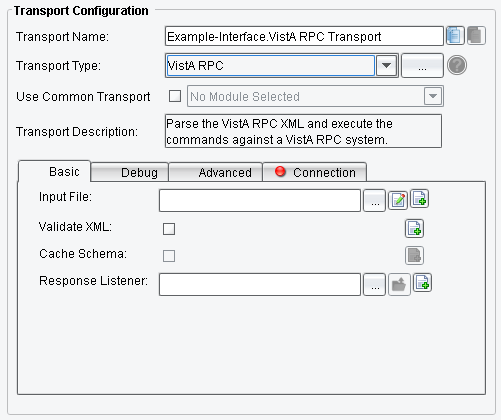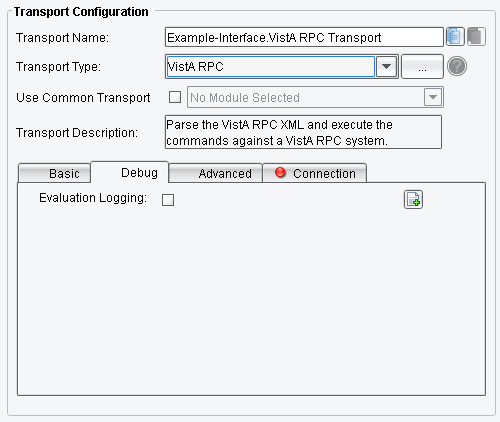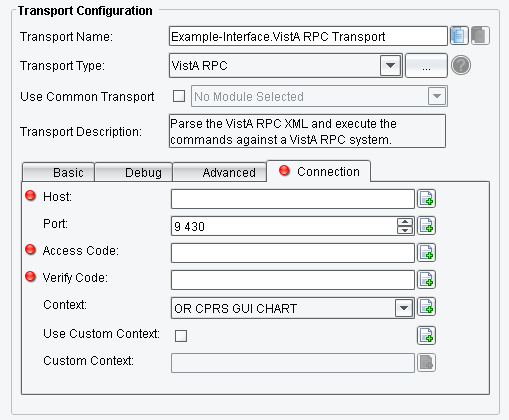VistA RPC Transport
The VistA RPC Transport parses the VistA RPC XML and executes the commands against a VistA RPC system.
On the Basic tab you can specify:
Input File: input file, if the transaction contents do not contain the document to evaluate.
Validate XML: if the received or loaded XML document should be validated against its schema.
Cache Schema: if the schema for validation should be cached, so it won’t be re-loaded on every execution.
Response Listener: A “Programmable” Listener to receive the output of the evaluation.
On the Debug tab you can specify:
Evaluation Logging: if selected, extra information about the evaluation process will be logged to help with debugging its execution. Keep in mind that, in some cases, sensitive information may be logged with this option, so it should be kept off by default. NOTE: This is separate from the Log elements in the XML structure.
On the Advanced tab you can specify:
Cache Type: set the type of cache used internally for storing data when the XML structure is executed.
On the Connection tab you can specify:
Host: the hostname of the VistA RPC system
Port: the port number of the VistA RPC system
Access Code: the access code for the VistA RPC system
Verify Code: the verify code for the VistA RPC system
Context: the context to use when running a remote procedure against a VistA RPC system. This is overridden by any Context elements added in the XML
Use Custom Context: whether or not to use a custom context for the VistA RPC call
Custom Context: a custom context for the VistA RPC call. This is overridden by any Context elements added in the XML




